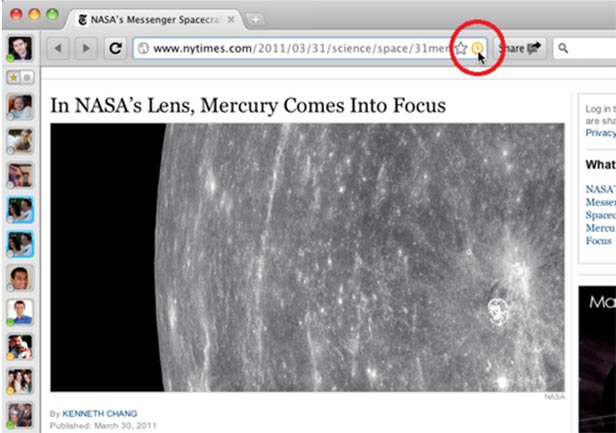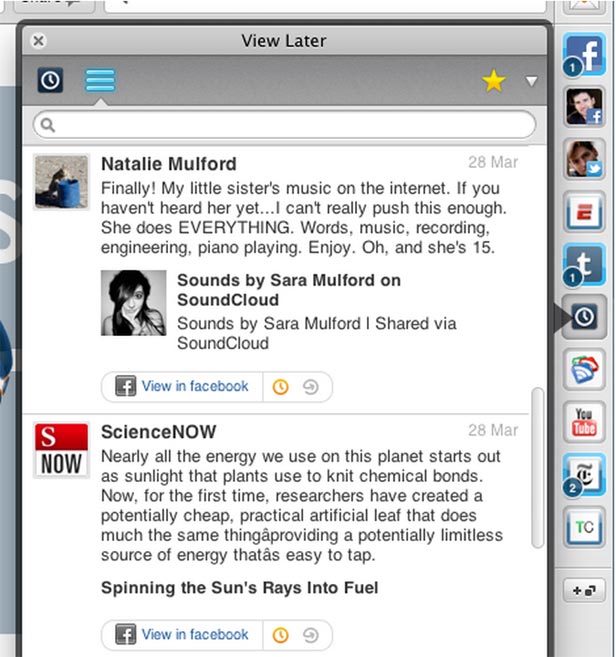Yahoo just announced that it has acquired Rockmelt, which you may remember launching a social browser a few years back. The browser was based on Chromium, but added a lot of social functionality that is for the most part already integrated into most of the content we consume on the web.
“We have acquired Rockmelt, a company dedicated to make browsing the internet faster and more fun,” a Yahoo spokesperson tells WebProNews .”Yahoo! and Rockmelt share a common goal to help people discover the best content from around the web. We plan to integrate the Rockmelt technology into Yahoo!’s experiences, and the Rockmelt team will help us to reimagine how we deliver our media content in new and exciting ways.”
Yahoo will be shutting down Rockmelt’s own apps on August 31st, and they’re no longer accepting new sign-ups. Rockmelt says in a blog post:
Yahoo! and Rockmelt share a common goal: To help people discover the best content from around the web. In our short four and a half years at Rockmelt, we’ve learned a lot about how you like to browse the web, discover content, and share the great stuff you’ve found. You’ve been right by our sides as we’ve celebrated successes, endured failures, and invented new ways of doing things. You’ve taught us a ton. And we plan to put everything we’ve learned to work at Yahoo!.
The truth is Rockmelt wouldn’t exist without you, our users. You showed us what it means to browse the web in today’s world. You made us go aww, lol, and hmm. And sometimes you confounded us, which gave us a good excuse to say wtf. Just by using Rockmelt, you made this opportunity possible. We can’t thank you enough for letting us into your daily lives and for believing in us. We will definitely keep you close to our thoughts, designs, and products in our new world.
They also shared this photo of the Rockmelt team wearing all purple:

Terms of the deal were not disclosed. According to All Things D, which has a reputation for gaining access to Yahoo insider info, puts the deal between $60 and $70 million.



